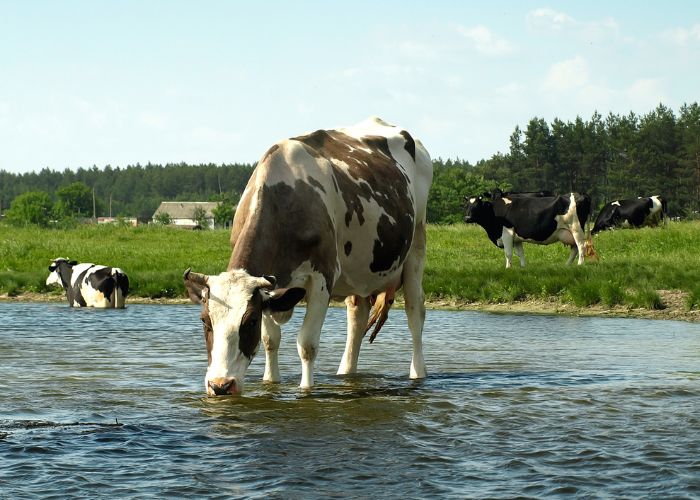MADRID – It is not only drought and climate change that negatively affect Spanish water resources. A report warns of the high presence of nitrates in drinking water from intensive agricultural and livestock farming in Spain. Consequently, water pollution in Spain is on the increase.
After decades, the domestic water supply has been regulated by various government administrations and water companies. However, its quality appears to be far from fully guaranteed by 2022. There are still situations where water quality is at risk due to the deterioration of water sources. This is especially in small and medium-sized cities.
See also: Almost half of surface and groundwater in Spain is in poor condition
The New Water Culture Foundation (FNCA), in collaboration with social groups and the Association of Public Water Managers, have prepared the report ‘Protecting the domestic water supply sources in Spain’. In this, 22 cases of drinking water supply were studied. The main conclusion is that most of the adverse effects come mainly from agriculture and livestock.
Contamination by nitrates
The first and most important issue that the research team found is the contamination of the water by nitrates. Nitrates are widely used as fertiliser in intensive agriculture. In addition, they are part of the slurry that is widely generated by industrial livestock.
Julia Martínez, technical director of the foundation, says: “In these 22 cases, there is a poor chemical condition of the water. So bad that a good quality human provision is not possible. This is mainly the result of an excess of nitrates. Although there are also some cases of salinisation and the presence of arsenic, heavy metals, and other contaminants,” says Martínez.
European complaint
The high nitrate levels in Spanish waters prompted the European Commission to refer Spain to the Court of Justice of the EU in December 2021. Despite repeated warnings, the country had “not taken adequate measures against nitrate pollution”. The Commission stressed that Spain still needs to take additional measures to combat eutrophication – pollution and loss of oxygen in the water due to excess nutrients.
Official data from the Ministry of Ecological Transition and the Demographic Challenge shows that 22% of surface water bodies and 23% of groundwater are contaminated with nitrates.
See also: Spanish electricity company empties reservoirs for its gain
However, the latest follow-up report on the European Nitrates Directive, from the same ministry, indicates that nearly 30% of groundwater monitoring stations and 50% of surface water are alert to poor water quality due to nitrate pollution.
Water Pollution in Spain up 51.5% in four years
The ministry’s document, covering the years 2016-19, states that average nitrate pollution has increased by 51.5% in four years. This period corresponds to the time when intensive macro-farms multiplied across the country.
Eutrophication bad for the environment and water supply
As the director of the FNCA points out, eutrophication affects not only the environment but also water for human consumption. “In many cases, the resources, often close by and at low cost, are rendered useless.” Then they move on to the use of more distant and/or cleaner sources, an increase in the treatments needed to deliver good water for consumption, or the deepening of wells. “In some cases, it was necessary to supply drinking water with tankers,” she emphasised.
Irrigation
The second most common problem found by the CANF study is the excessive pressure on and withdrawal of bodies of water. These cause the depletion of resources, the drying up of wells, and the reduction of aquifer reserves. “In Spain, 80% of water is consumed by irrigation, leading to problems of over-exploitation,” says the Foundation’s director.
The polluter pays
For Martínez the polluter must pay principle is applied, but according to her this principle is not currently applied. “Land and livestock users pay nothing for the diffuse agricultural pollution they cause.” The CANF also points out that government services should respond better. Usually, their actions are aimed at mitigating the effects of the problem and not at the root of the problem.
Delivery priority
The FNCA emphasises that human resources take precedence over any other use. This becomes reflected in the law. It is even a human right that was recognized by the United Nations in 2010. Moreover, this right is reflected in the European directive related to the quality of drinking water and the Spanish Water Act.


